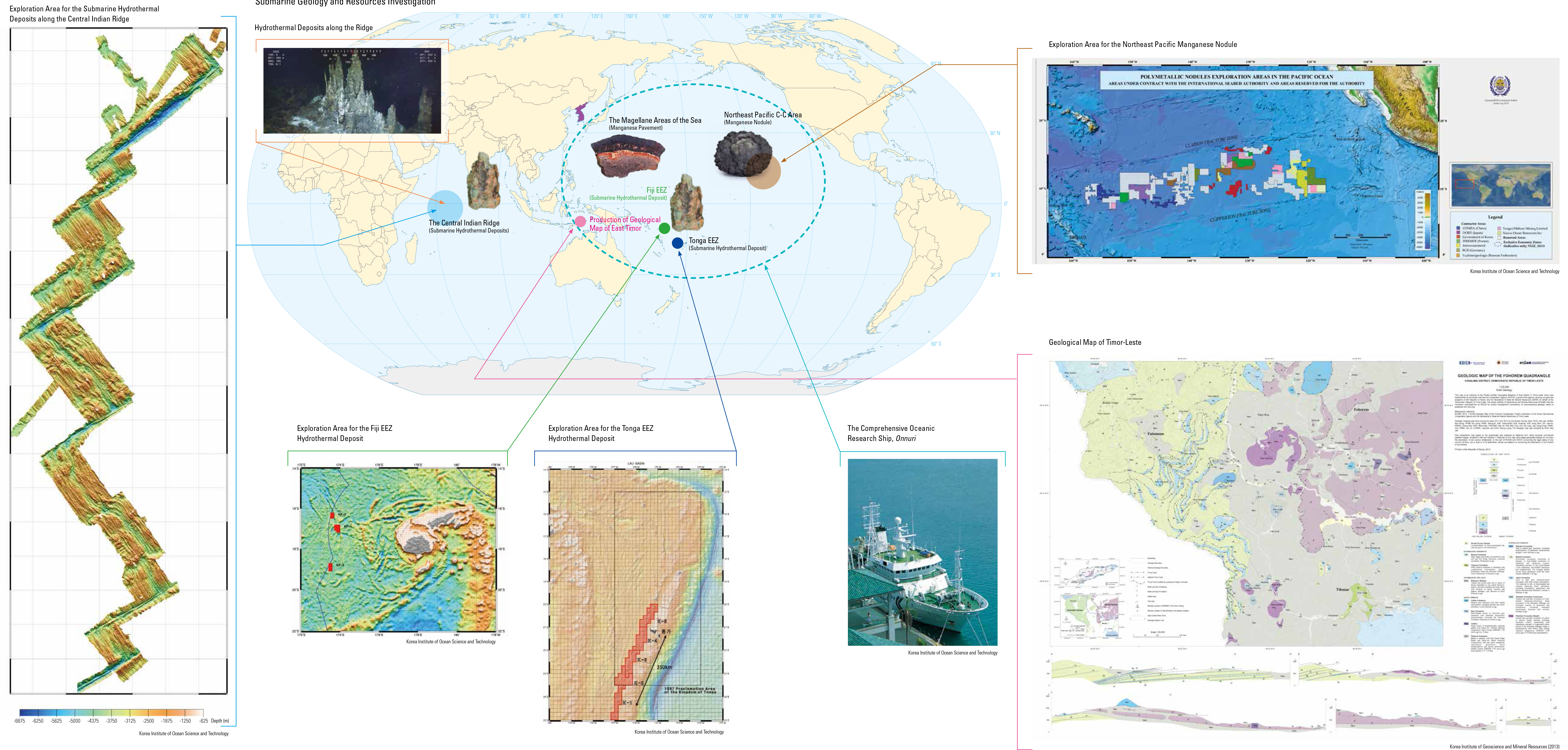English II
Recently geological surveys have been actively carried out in foreign countries. In 1990, the Ko- rea Ocean Research and Development Institute, the predecessor of the Korea Institute of Ocean Sciences and Technology, began to pursue a full- scale research on deep ocean mineral resources, and in 1992 began efforts to acquire mining rights for manganese nodules in the deep oceans. In 1994, South Korea became the seventh country in the world to acquire mining rights in the Clarion-Clip- perton sea sector in the Paci c Ocean. Exploration efforts were expanded to include searches for manganese pavements, submarine hydrothermal deposits, and other deep-sea resources. During 2008 – 2012, South Korea further obtained explo- ration rights for submarine hydrothermal deposits in the EEZ areas of Tonga and Fiji and acquired mining rights for submarine hydrothermal deposits in the open sea within the Indian Ocean. Korea has expanded its research area from the eastern Pacic Ocean and southwestern Paci c Ocean to the Indi- an Ocean. The oceanographic research ship Onnuri (1,442 ton), which can carry out ocean exploration, has made it possible for the Korea Institute of Ocean Sciences and Technology to pursue a full-scale deep sea mineral re- source exploration projects. The Onnuri was launched in 1992 and played an important role in acquiring mining rights for manganese nodules in the Paci c Ocean (1994), exploration rights for submarine hydrothermal de posits in Tonga (2008) and Fiji (2011), and mining rights for submarine hydrothermal deposits in the Indian Ocean (2012). After acquiring exploration rights for a submarine hydrothermal deposit in the EEZ of Tonga in 2008, five leading domestic en- terprises participated in the exploration to evaluate the reserve of deep sea mineral resources during the period of 2009 to 2012, initiating the first case of commercial exploration led by private organization. Through efforts during the last 25 years, the total
page_2 |
